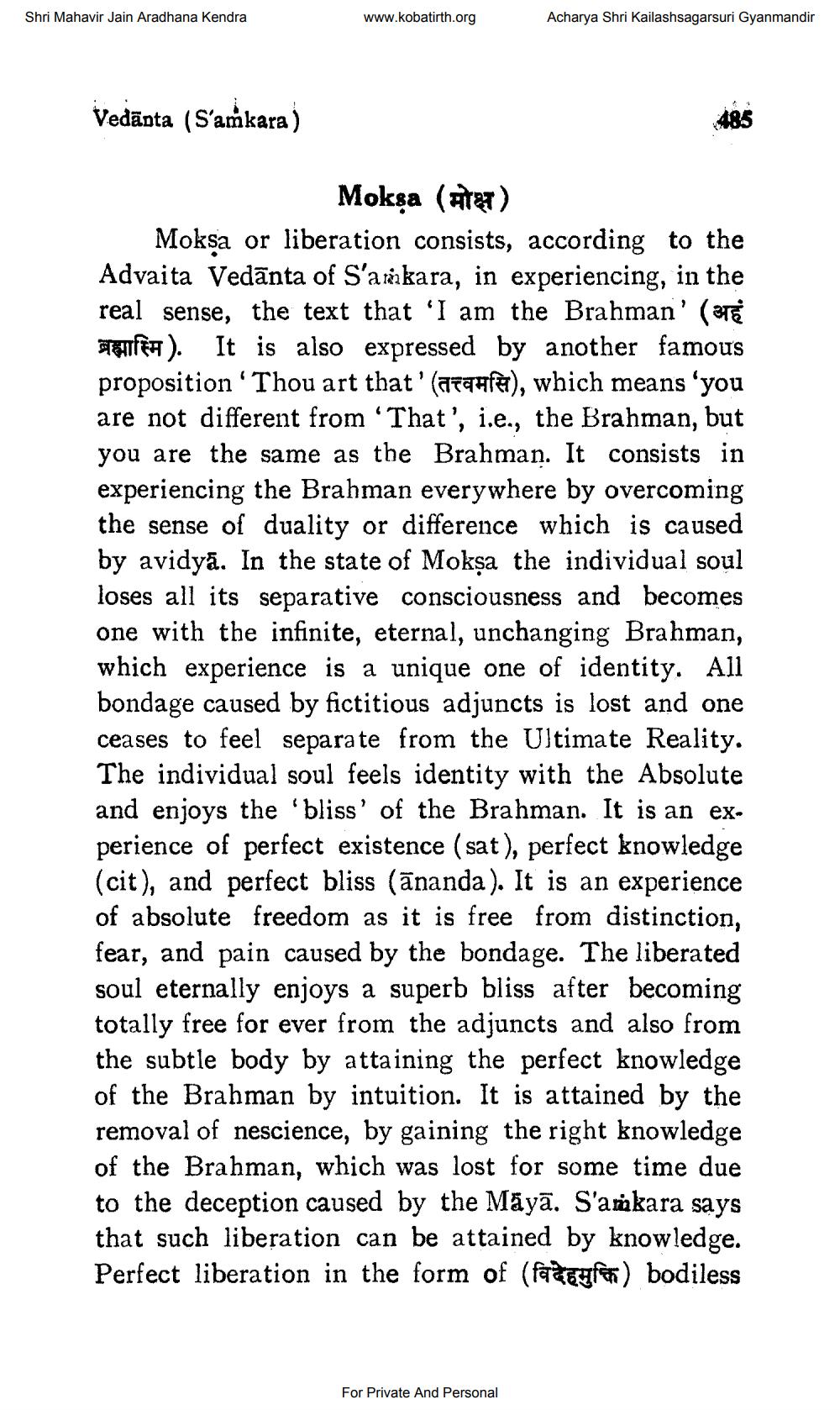________________
Shri Mahavir Jain Aradhana Kendra
Vedanta (S'amkara)
www.kobatirth.org
Acharya Shri Kailashsagarsuri Gyanmandir
For Private And Personal
485
Mokṣa (a)
Mokṣa or liberation consists, according to the Advaita Vedanta of S'amkara, in experiencing, in the real sense, the text that 'I am the Brahman' (até ब्रह्मास्मि ). It is also expressed by another famous proposition 'Thou art that' (f), which means 'you are not different from 'That', i.e., the Brahman, but you are the same as the Brahman. It consists in experiencing the Brahman everywhere by overcoming the sense of duality or difference which is caused by avidya. In the state of Mokṣa the individual soul loses all its separative consciousness and becomes one with the infinite, eternal, unchanging Brahman, which experience is a unique one of identity. All bondage caused by fictitious adjuncts is lost and one ceases to feel separate from the Ultimate Reality. The individual soul feels identity with the Absolute and enjoys the 'bliss' of the Brahman. It is an experience of perfect existence (sat), perfect knowledge (cit), and perfect bliss (ānanda). It is an experience of absolute freedom as it is free from distinction, fear, and pain caused by the bondage. The liberated soul eternally enjoys a superb bliss after becoming totally free for ever from the adjuncts and also from the subtle body by attaining the perfect knowledge of the Brahman by intuition. It is attained by the removal of nescience, by gaining the right knowledge of the Brahman, which was lost for some time due to the deception caused by the Maya. S'amkara says that such liberation can be attained by knowledge. Perfect liberation in the form of (fay) bodiless




